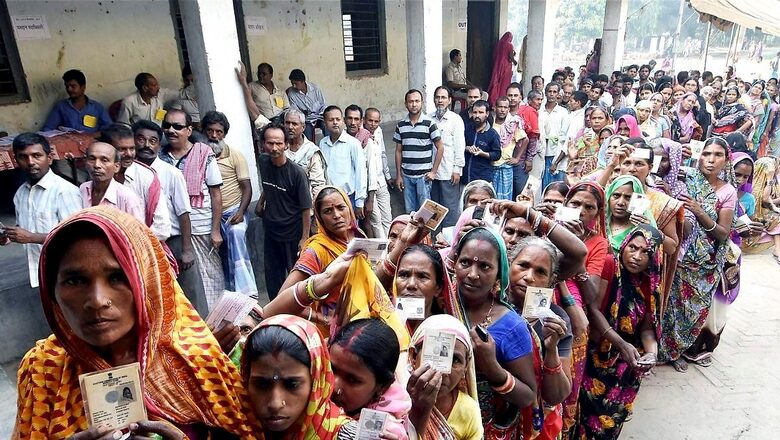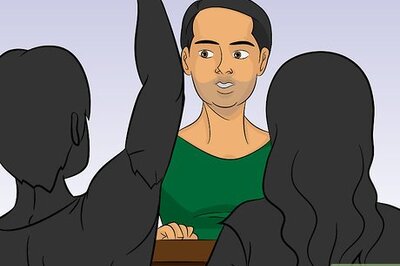
views
The government on Saturday notified an eight-member high-level committee to examine and make recommendations at the earliest on the issue of holding simultaneous elections to the Lok Sabha, state assemblies, municipalities, and panchayats. The committee, headed by former President Ram Nath Kovind, have Union Home Minister Amit Shah, Congress leader in Lok Sabha Adhir Ranjan Chowdhury, former leader of the opposition in Rajya Sabha Ghulam Nabi Azad and former Finance Commission chairman NK Singh as members.
Other members of the committee include former Lok Sabha Secretary General Subhash C Kashyap, senior advocate Harish Salve, and former Chief Vigilance Commissioner Sanjay Kothari. The Kovind-led committee’s objective is to investigate the feasibility of implementing the concept of ‘one nation, one election’.
Law Minister Arjun Ram Meghwal will attend the meetings of the committee as a special invitee, while Legal Affairs Secretary Niten Chandra will be secretary to the panel.
The committee will examine and recommend specific amendments to the Constitution, the Representation of the People Act, and any other laws and rules that would require amendments for the purpose of holding simultaneous elections. It will also examine and recommend if the amendments to the Constitution would require ratification by the States.
The committee will also analyse and recommend possible solutions to scenarios such as a hung House, adoption of the no-confidence motion, defection, or any other event in case of simultaneous elections. The committee will hear and entertain all persons, representations, and communications which in its opinion can facilitate its work and enable it to finalise its recommendations.
‘Total Eyewash’: Adhir Ranjan Chowdhury
However, Adhir Ranjan Chowdhury has declined to be a part of the high-level committee. In a letter to Union Home Minister Amit Shah, he said he has come to know that he has been appointed a member of the high-level committee on simultaneous polls to the Lok Sabha and Vidhan Sabhas.
“I have no hesitation whatsoever in declining to serve on the Committee whose terms of reference have been prepared in a manner to guarantee its conclusions. It is, I am afraid, a total eyewash,” he said in his letter.
“Moreover, the sudden attempt to thrust a constitutionally suspect, pragmatically non-feasible and logistically unimplementable idea on the nation, months before the general elections, raises serious concerns about ulterior motives of the government,” he added.
The Congress leader also lamented the exclusion of current Leader of Opposition in Rajya Sabha Mallikarjun Kharge from the committee. “This is a deliberate insult to the system of Parliamentary democracy. In these circumstances, I have no option but to decline your invitation,” said Chowdhury, who is also the chairman of the Public Accounts Committee of Parliament.
What is One Nation, One Election?
The idea of ‘One Nation, One Election’ refers to holding simultaneous elections across the country. This simply means that the polls for Lok Sabha and state assemblies will be held together.
The Election Commission (EC) conducts the elections for state assemblies and Lok Sabha (Parliament) as separate events. Every state holds its elections every five years, similar to the Lok Sabha. Most of the states have their own electoral cycle.
The committee’s formation over ‘One Nation, One Election’ comes at a time when five states- including Madhya Pradesh and Rajasthan are set to conduct assembly elections in November-December.
These assembly elections will precede the Lok Sabha elections, expected in May-June 2024. On the other hand, the states of Andhra Pradesh, Odisha, Sikkim and Arunachal Pradesh are scheduled to go to the polls with the Lok Sabha elections.
The government is contemplating advancing some of the Assembly elections to coincide with the Lok Sabha polls. The committee led by Kovind will explore the feasibility of the exercise and the mechanism to examine how the country can go back to having simultaneous Lok Sabha and state assembly polls.
(with inputs from PTI)



















Comments
0 comment